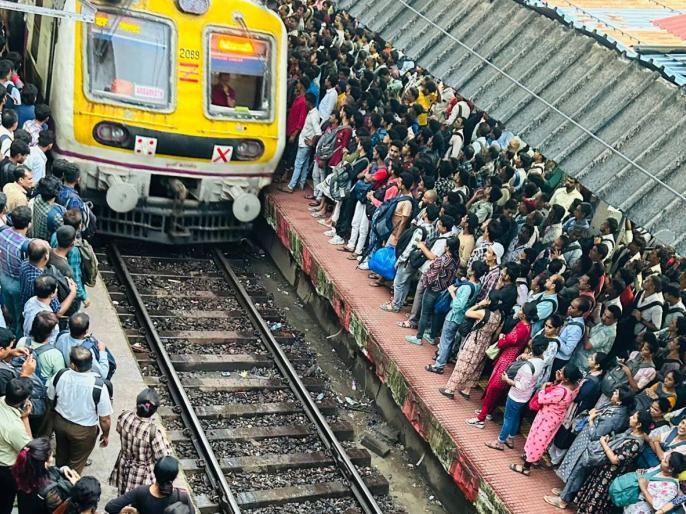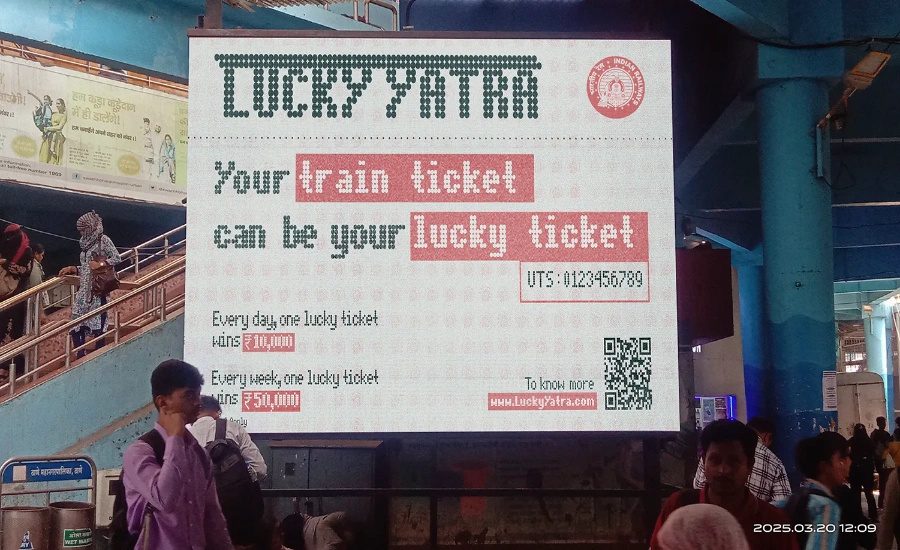In a bid to counter ticketless travel by commuters in trains, the Central Railway has launched an initiative called the “Lucky Yatra” scheme. The scheme aims to encourage the purchase of tickets by rewarding regular ticket-buyers and providing an incentive for ticketless travelers to adopt lawful travel practices.
India reportedly spends around USD 30 billion annually on lottery tickets. Drawing from this insight, Central Railway conceived the Lucky Yatra scheme as a creative avenue to promote ticketed travel—transforming every train ticket into a potential lottery ticket. Under the scheme, one lucky ticket holder will win ₹10,000 each day, with an additional weekly prize of ₹50,000 awarded to one commuter every week.
The scheme is entirely sponsored by FCB Interface Communication Private Limited, and participation is free for passengers—no additional cost is required to be eligible.
Each day, the railway division selects a UTS (Unreserved Ticketing System) number and shares it with the advertising agency, which then publishes it on the official website. Passengers must check the website, register if their UTS number matches, and visit Chhatrapati Shivaji Maharaj Terminus (CSMT), Mumbai, with their ticket to claim the prize. If the ticket is verified as valid, the prize is awarded on the spot.

Central Railway witnesses an average daily ridership of 40 lakh passengers. It is estimated that nearly 20% of these travel without a valid ticket. During regular ticket-checking drives, approximately 4,000 to 5,000 ticketless travelers are caught each day, underscoring the scale of the issue.
The Lucky Yatra scheme, which commenced on March 20, 2025, is scheduled to continue until the second week of May 2025. However, the initiative has yet to achieve the outreach it anticipated. A majority of the daily and weekly rewards have gone unclaimed, primarily due to a lack of awareness among commuters or skepticism, with many assuming the scheme is either a rumour or a scam.
Despite the slow start, both Central Railway and FCB Interface Communication remain optimistic. They believe the scheme has the potential to shift travel behavior by promoting legitimate ticket purchase and reducing the financial losses incurred by Indian Railways due to ticketless travel



























